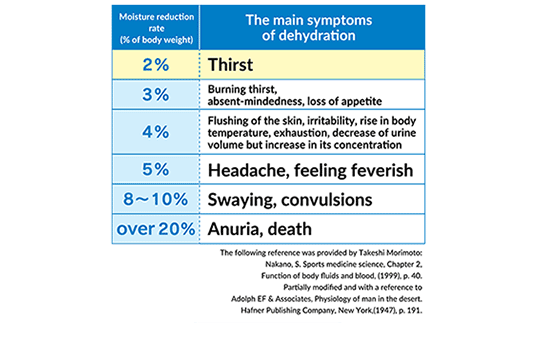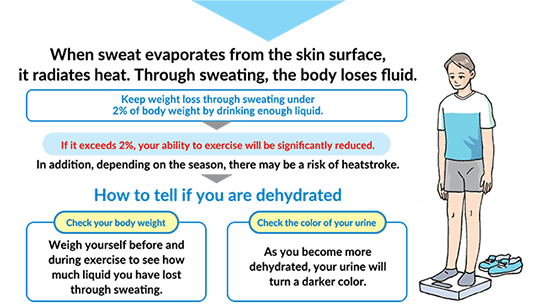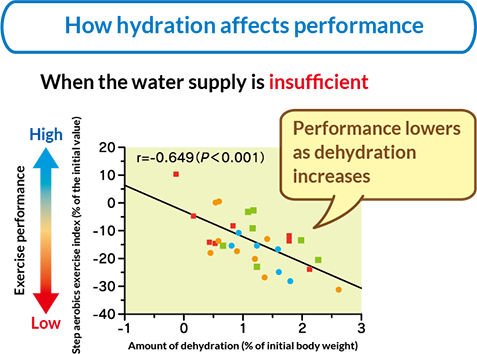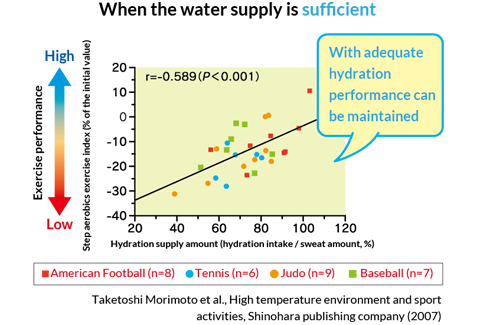What happens when the body is dehydrated?
Symptoms of dehydration
What happens when the human body's vital fluids are lost?
The body's rate of sweating during exercise can reach up to two liters per hour. Such heavy sweating can lead to dehydration exceeding 2% of body weight, which significantly affects athletic performance and competitive results.
Source: Guidebook for the Prevention of Heat Stroke During Sports Activities, Japan Sport Association


The Japan Sport Association names 5 precautions that should be taken to prevent heat stroke during sports activities
- 1Take the environmental temperature into account
- 2Ensure your body is accustomed to the heat
- 3Ensure an appropriate supply of fluids and salts
- 4Cool your body down
- 5Pay attention to the individual's physical condition.
The appropriate supply of fluids and salts is an important way to prevent dehydration.
Training in hot weather increases the risk of heat stroke.
Adjust exercise levels according to environmental conditions,
take proper breaks, and rehydrate properly.
Diminished performance
Diminished performance due to inadequate rehydration is a major problem for athletes and those who exercise regularly. While performance diminishes with the loss of fluids through perspiration, thorough rehydration allows for performance levels to be maintained.
Experiments in the correlation between dehydration / rehydration levels and step aerobic exercise indexes as indicators of aerobic exercise capacity











